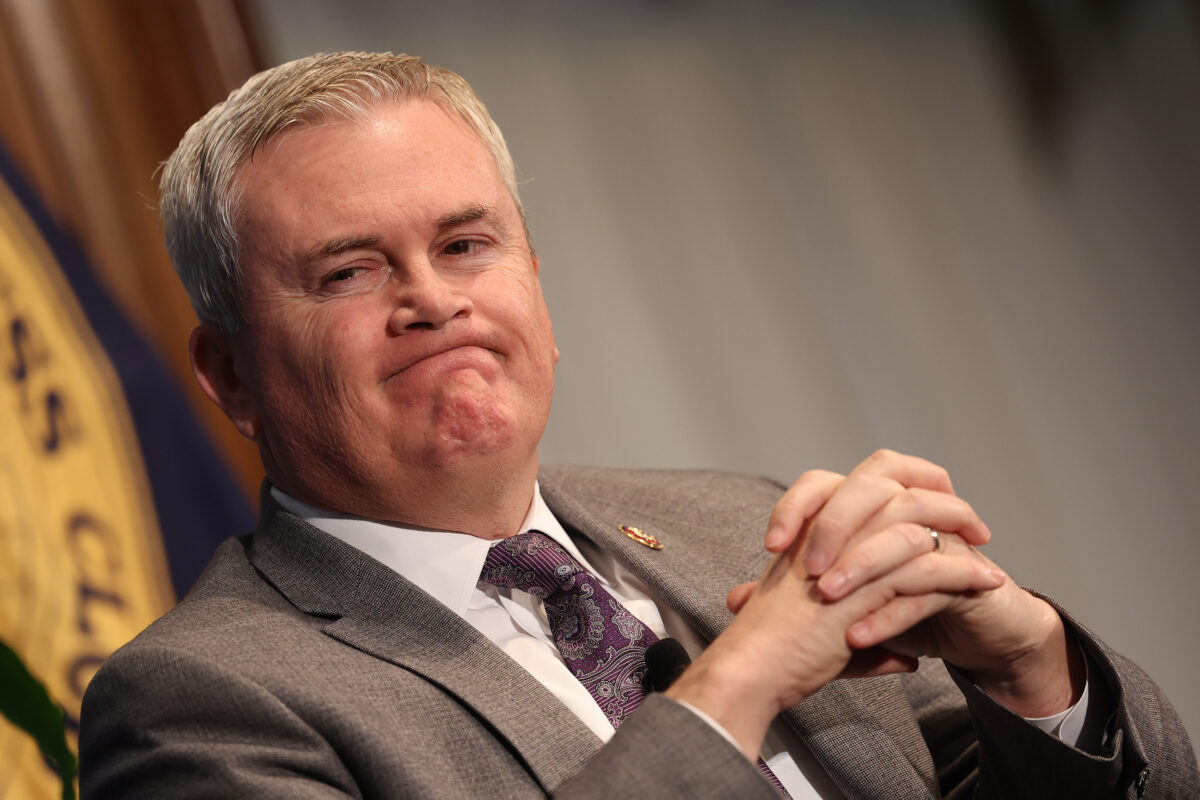House panel wants to know how drug prices are set.
Democrats and Republicans Unite to Address Unfair Drug Pricing
In a rare demonstration of bipartisanship during a House Committee on Oversight and Accountability hearing on May 23, Democrats and Republicans jointly voiced concern and disapproval—and sought answers—about the behind-the-scenes deal-making that results in consumer drug pricing the legislators say is unfair and unreasonably high.
In fact, almost two-and-half hours into the hearing, first-term Rep. Jasmine Crockett (D-Texas) said: “I applaud all my colleagues, which, you know, tend to be a little partisan. And so I didn’t know that we could actually agree on much of anything.
“And so, you know, today has revealed that miracles are still happening in the world.”
The hearing was the first that Chairman James Comer (R-Ky.) and the committee held on the practices of pharmacy benefit managers (PBMs), which manage prescription benefits and prices on behalf of insurers, the government, and other large payers.

Pharmacy Benefit Managers Need to Be Held Accountable
Comer and his colleagues contend that PBMs need to be held more accountable and operate with more transparency in their role as a middleman between drug manufacturers and pharmacies—and the public must be allowed better insight into the business and pricing arrangements, as well as contracts and payments among these groups.
An example of specific business agreements the committee is looking into is what big pharma pays in rebates to PBMs to sell and distribute their pharmaceuticals.
Although there are about 30 PBMs, three—CVS Caremark, Express Scripts, and OptumRx—together control approximately 80 percent of the market. These three PBMs are part of a dominant supply chain network of corporations,
- CVS Health owns CVS Caremark, CVS Pharmacy, and the health insurer Aetna.
- UnitedHealth Group owns OptumRx and UnitedHealthcare, a health insurer.
- The health insurance company Cigna owns Express Scripts.
Prices ‘Through the Roof’
“Today, health care premiums have increased faster than inflation,” said Comer in his opening statement. “List prices for prescription drugs have gone through the roof, even though net prices have declined.
“And despite this increase in health care costs, life expectancy has remained stagnant. That means someone is benefiting, and it isn’t patients. Look no further than PBMs or pharmacy benefit managers.”
The first PBM was Diversified Prescription Delivery, founded in 1988 by UnitedHealthcare.
Comer said there was a time when prescription benefit managers served a valuable purpose for consumers and across the supply chain.
The chairman noted that when there were “more than a dozen large PBMs” it fostered a competitive environment that encouraged the organizations to perform far more openly than nowadays and promoted PBMs striving to outdo their market opponents in delivering helpful and clear information for consumers, pharmacies, and drug makers.
Comer noted that in years past, PBMs would “quickly tell pharmacists across the country whether insurance would cover a patient’s medication and what the patient’s copay would be. They were able to negotiate reduced cost of prescription drugs, pitting competing manufacturers against one another.
“They were able to drive down premiums for patients by encouraging greater adoption of lower cost medication.”
All About Profits
Witnesses who appeared at the hearing were Miriam Atkins, a physician who is president of the Community Oncology Alliance (Augusta, Ga.); Kevin Duane, a pharmacist and owner of Panama Pharmacy in Jack
" Conservative News Daily does not always share or support the views and opinions expressed here; they are just those of the writer."





Now loading...